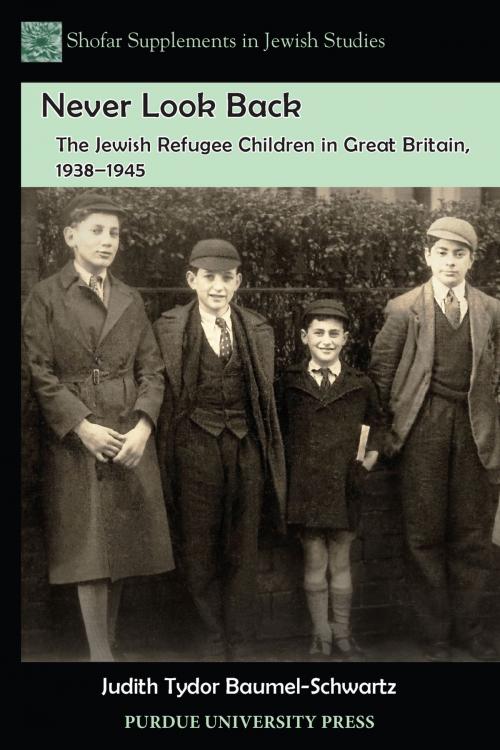Never Look Back
The Jewish Refugee Children in Great Britain, 1938-1945
Nonfiction, Social & Cultural Studies, Social Science, Cultural Studies, Emigration & Immigration, History, Jewish, Holocaust| Author: | Judith Tydor Baumel-Schwartz | ISBN: | 9781612492223 |
| Publisher: | Purdue University Press | Publication: | June 15, 2012 |
| Imprint: | Purdue University Press | Language: | English |
| Author: | Judith Tydor Baumel-Schwartz |
| ISBN: | 9781612492223 |
| Publisher: | Purdue University Press |
| Publication: | June 15, 2012 |
| Imprint: | Purdue University Press |
| Language: | English |
Between December 1938 and September 1939, nearly ten thousand refugee children from Central Europe, mostly Jewish, found refuge from Nazism in Great Britain. This was known as the Kindertransport movement, in which the children entered as "transmigrants," planning to return to Europe once the Nazis lost power. In practice, most of the kinder, as they called themselves, remained in Britain, eventually becoming citizens. This book charts the history of the Kindertransport movement, focusing on the dynamics that developed between the British government, the child refugee organizations, the Jewish community in Great Britain, the general British population, and the refugee children. After an analysis of the decision to allow the children entry and the machinery of rescue established to facilitate its implementation, the book follows the young refugees from their European homes to their resettlement in Britain either with foster families or in refugee hostels. Evacuated from the cities with hundreds of thousands of British children, they soon found themselves in the countryside with new foster families, who often had no idea how to deal with refugee children barely able to understand English. Members of particular refugee children's groups receive special attention: participants in the Youth Aliyah movement, who immigrated to the United States during the war to reunite with their families; those designated as "Friendly Enemy Aliens" at the war's outbreak, who were later deported to Australia and Canada; and Orthodox refugee children, who faced unique challenges attempting to maintain religious observance when placed with Gentile foster families who at times even attempted to convert them. Based on archival sources and follow-up interviews with refugee children both forty and seventy years after their flight to Britain, this book gives a unique perspective into the political, bureaucratic, and human aspects of the Kindertransport scheme prior to and during World War II.
Between December 1938 and September 1939, nearly ten thousand refugee children from Central Europe, mostly Jewish, found refuge from Nazism in Great Britain. This was known as the Kindertransport movement, in which the children entered as "transmigrants," planning to return to Europe once the Nazis lost power. In practice, most of the kinder, as they called themselves, remained in Britain, eventually becoming citizens. This book charts the history of the Kindertransport movement, focusing on the dynamics that developed between the British government, the child refugee organizations, the Jewish community in Great Britain, the general British population, and the refugee children. After an analysis of the decision to allow the children entry and the machinery of rescue established to facilitate its implementation, the book follows the young refugees from their European homes to their resettlement in Britain either with foster families or in refugee hostels. Evacuated from the cities with hundreds of thousands of British children, they soon found themselves in the countryside with new foster families, who often had no idea how to deal with refugee children barely able to understand English. Members of particular refugee children's groups receive special attention: participants in the Youth Aliyah movement, who immigrated to the United States during the war to reunite with their families; those designated as "Friendly Enemy Aliens" at the war's outbreak, who were later deported to Australia and Canada; and Orthodox refugee children, who faced unique challenges attempting to maintain religious observance when placed with Gentile foster families who at times even attempted to convert them. Based on archival sources and follow-up interviews with refugee children both forty and seventy years after their flight to Britain, this book gives a unique perspective into the political, bureaucratic, and human aspects of the Kindertransport scheme prior to and during World War II.















